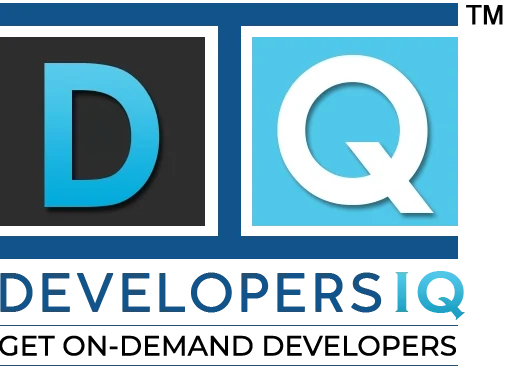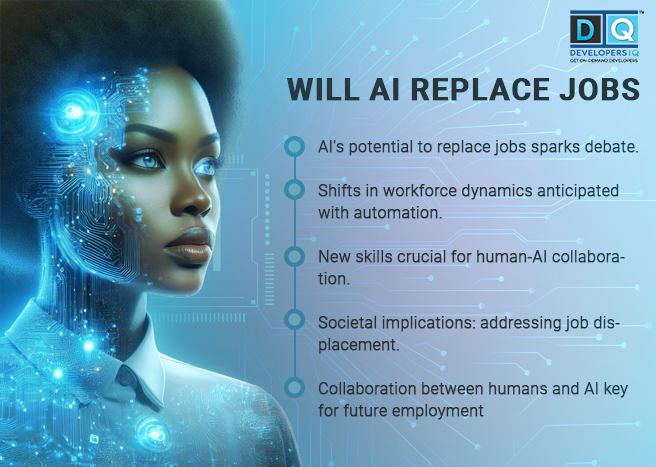In today’s rapidly evolving technological landscape, the question of whether AI will replace jobs looms large. With advancements in artificial intelligence (AI) and automation, concerns about job displacement and the future of work are at the forefront of public discourse. While some view AI as a threat to employment, others see it as a catalyst for innovation and new opportunities. In this blog post, we’ll delve into the complexities of this issue, examining both the challenges and the potential benefits of AI in the workplace.
It’s undeniable that AI has already begun to impact various industries, from manufacturing to healthcare to finance. Automation has streamlined processes, increased efficiency, and improved productivity in many sectors. However, this has also led to fears of job loss as tasks traditionally performed by humans are now being automated by machines.
One of the key factors influencing the impact of AI on jobs is the type of tasks involved. Routine, repetitive tasks are most susceptible to automation, while jobs that require creativity, critical thinking, and emotional intelligence are less likely to be automated. For example, roles in data entry, assembly line work, and customer service are increasingly being automated, whereas jobs in software development, design, and strategic planning require human ingenuity and problem-solving skills that are difficult for AI to replicate.
Moreover, AI is not simply a substitute for human labor but can also complement and enhance human capabilities. By automating mundane tasks, AI frees up time for workers to focus on higher-level tasks that require human judgment and creativity. For instance, in the field of medicine, AI algorithms can analyze medical images and diagnostic data to assist healthcare professionals in making more accurate diagnoses and treatment decisions, ultimately improving patient outcomes.
Another aspect to consider is the potential for AI to create new job opportunities. As AI technologies continue to advance, new roles will emerge to develop, maintain, and oversee AI systems. This includes jobs in AI research, data science, machine learning engineering, and AI ethics and governance. Furthermore, the proliferation of AI is driving demand for workers with interdisciplinary skills, such as a combination of technical expertise and domain-specific knowledge, opening up avenues for individuals to reskill and upskill for the jobs of the future.
However, the widespread adoption of AI also raises ethical and societal concerns that must be addressed. One major concern is the exacerbation of inequality, as AI-driven automation may disproportionately affect certain demographics, industries, and regions, leading to job displacement and economic hardship for those affected. Additionally, there are concerns about the potential for bias and discrimination in AI systems, as they reflect the biases inherent in the data used to train them. Ensuring that AI is developed and deployed in an ethical and equitable manner requires careful consideration of these issues and proactive measures to mitigate unintended consequences.
In conclusion, the question of whether AI will replace jobs is complex and multifaceted. While AI has the potential to disrupt traditional employment patterns and eliminate certain types of jobs, it also presents opportunities for innovation, productivity gains, and the creation of new job roles. To harness the benefits of AI while minimizing its negative impacts, it is essential to adopt a proactive approach that prioritizes ethical considerations, invests in education and training, and fosters collaboration between humans and machines. By doing so, we can navigate the challenges of AI-driven automation and shape a future where technology enhances, rather than replaces, human work.






















